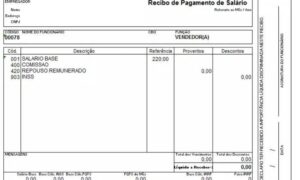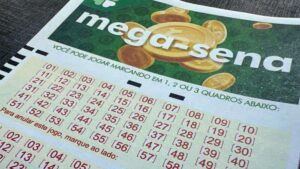The Copa del Rey final between Barcelona and Real Madrid, played at La Cartuja stadium in Seville, has been a spectacle of emotions up to the 32nd minute of the second half. The classic, featuring Spain’s two football giants, is marked by high-intensity moments, with Real Madrid turning the scoreline to 2-1, thanks to goals from Kylian Mbappé and Aurélien Tchouaméni. Barcelona, which dominated the first half and took the lead with a stunning goal from Pedri, saw their rivals gain momentum in the second half, driven by strategic substitutions and the pace of Vinícius Júnior. The match, still ongoing, keeps fans glued to their screens, with goal-scoring chances for both sides and a frenetic pace.
The game kicked off with Barcelona imposing their possession-based style and high pressing, hallmarks of Hansi Flick’s team. From the opening minutes, the Catalans sought to attack, exploiting the flanks with Lamine Yamal and Raphinha, while Pedri and Dani Olmo dictated the tempo in midfield. Real Madrid, in contrast, adopted a more cautious approach, relying on counterattacks led by Vinícius Júnior, who, despite being isolated in the first half, was the merengues’ main offensive weapon. The introduction of Kylian Mbappé in the second half, even though not fully fit, shifted the game’s dynamics, bringing more verticality to Real’s attack.
The rivalry between the two clubs, meeting in the Copa del Rey final for the first time since 2014, underscores the match’s significance. La Cartuja stadium, with a capacity of around 60,000 spectators, is packed, and the atmosphere is electric. Off the pitch, the game was preceded by controversies, including Real Madrid’s criticism of the refereeing and incidents between fans, which led to one arrest before the match. Inside the lines, however, the focus is absolute, with both teams vying for the prestigious competition’s title.
⚽ 77′ | 1-2 | ¡¡¡GOOOOOOOOOOOOOOOOL de @atchouameni!!!#FC25 | @easportsfc pic.twitter.com/lGVtErDvHz
— Real Madrid C.F. (@realmadrid) April 26, 2025
Catalan dominance in the first half
Barcelona started the match aggressively, controlling possession and pressing Real Madrid in their defensive half. At the 6th minute, Ferrán Torres nearly opened the scoring after a low cross, but Tchouaméni made a crucial interception. The Catalan side kept pushing, and at the 15th minute, Raphinha crossed for Ferrán Torres, who was blocked by Valverde in a controversial moment where Barcelona players demanded a penalty for a supposed handball. The referee, however, deemed Valverde’s arm in a natural position and let play continue.
At the 18th minute, Lamine Yamal, one of Barcelona’s rising stars, rattled the Real defense with a low shot that skimmed past Thibaut Courtois’ post. The Belgian goalkeeper, in fact, was pivotal in keeping Real Madrid in the game, making key saves, such as at the 20th minute, when he parried a dangerous header from Jules Koundé off a Raphinha free kick. Barcelona’s dominance was rewarded at the 28th minute when Pedri scored a screamer. After a move down the right, Yamal rolled the ball to the edge of the box, and the midfielder struck a first-time shot into the top corner, leaving Courtois with no chance.
Real Madrid, struggling to create chances in the first half, managed their first real opportunity only at the 22nd minute, when Rodrygo found Fran García in the box, but the full-back was blocked at the moment of shooting. In stoppage time, Vinícius Júnior won a penalty on an individual play, but the call was overturned for offside, sparking complaints from coach Carlo Ancelotti, who was booked with a yellow card. The first half ended with Barcelona leading 1-0, but Real Madrid showed signs they could fight back in the second half.
- Key moments of the first half:
- 6’: Ferrán Torres nearly scores, but Tchouaméni clears a cross in the box.
- 15’: Valverde blocks Ferrán Torres’ shot, and Barcelona demands a handball penalty.
- 18’: Lamine Yamal shoots low and nearly opens the scoring.
- 20’: Courtois makes a great save on Koundé’s header.
- 28’: Pedri scores a stunning goal with a top-corner strike.
Tactical changes and Real Madrid’s comeback
The second half began with a game-changing substitution for Real Madrid: Kylian Mbappé, who started on the bench due to an ankle sprain, replaced Rodrygo. The Frenchman’s presence added dynamism to the merengue attack, which started exploiting counterattacks more effectively. At the 3rd minute, Vinícius Júnior had two clear chances, both stopped by outstanding saves from Wojciech Szczesny, who emerged as one of Barcelona’s standout performers.
At the 9th minute, Real Madrid gained further momentum with the introductions of Arda Güler and Luka Modric, replacing Dani Ceballos and Lucas Vázquez. The changes brought more creativity to the midfield, and the team began to press Barcelona. By the 12th minute, the game became end-to-end, with chances for both sides. Raphinha squandered an opportunity for Barcelona, shooting wide on a counterattack, while Vinícius Júnior threatened with a cross-shot that narrowly missed the post.
Real Madrid’s equalizer came at the 24th minute, with a pinpoint free kick from Kylian Mbappé. After winning a foul at the edge of the box, the Frenchman struck the ball into Szczesny’s right corner, with the shot clipping the post before going in. The goal ignited Real, who kept pushing. At the 28th minute, Vinícius Júnior nearly scored the go-ahead goal on a counterattack, but Cubarsí made a vital block. The turnaround, however, came at the 31st minute: Arda Güler whipped in a corner, and Tchouaméni rose above the defense to head powerfully past Szczesny.
Intensity and balance in the second half
Following the comeback, the match grew even more thrilling, with Barcelona pushing for a quick response. At the 15th minute, Raphinha had another clear chance but shot wide after a pass from Dani Olmo. The Brazilian, in fact, was one of the most active in Barcelona’s attack but lacked precision in finishing. On the Real Madrid side, Vinícius Júnior remained a constant threat, with dribbles and runs that kept Barcelona’s defense on edge.
Carlo Ancelotti’s substitutions, particularly Mbappé’s entrance, were decisive in shifting the game’s momentum. The Frenchman, despite not being fully fit, showed his quality with the free-kick goal and in quick attacking moves. Modric, with his vision, also helped organize the midfield, while Güler brought freshness to the attack. For Barcelona, Fermín López’s substitution for Dani Olmo in the second half aimed to maintain intensity, but the team struggled to contain Real’s pressure.
- Decisive moments of the second half up to the 32nd minute:
- 3’: Vinícius Júnior has two chances, but Szczesny makes great saves.
- 9’: Modric and Güler’s entrances give Real Madrid new energy.
- 15’: Raphinha shoots wide on a Barcelona counterattack.
- 24’: Mbappé equalizes with a free kick into Szczesny’s right corner.
- 31’: Tchouaméni scores the go-ahead goal with a header from Güler’s corner.
Context of the rivalry and the title’s importance
The Copa del Rey final between Barcelona and Real Madrid is more than just a match; it’s a chapter in one of football’s greatest rivalries. The two clubs, which together boast dozens of domestic and international titles, have a rich history of memorable clashes. The last time they met in the competition’s final was in 2014, when Real Madrid won 2-1, with an iconic goal from Gareth Bale.
For Barcelona, the title would be a significant step toward a potential “treble” (Copa del Rey, La Liga, and Champions League), a dream fueled by the team’s strong season under Hansi Flick. The absence of Robert Lewandowski, sidelined by injury, is a challenge, but youngsters like Lamine Yamal and Pedri have stepped up. For Real Madrid, led by Carlo Ancelotti, the aim is to reassert their dominance in knockout competitions, with a squad blending experience (Modric, Courtois) and youth (Vinícius, Bellingham).
The refereeing controversy that marked the buildup added extra tension to the clash. Real Madrid, unhappy with comments from referee Ricardo de Burgos Bengoetxea, skipped the pre-match press conference and the official dinner but confirmed their presence on the pitch. On the field, however, these issues seem to have no impact, with the players delivering a spectacle worthy of the classic’s grandeur.
Defensive challenges and the goalkeepers’ role
Both teams face distinct defensive challenges. Barcelona’s high defensive line is vulnerable to the speed of Vinícius Júnior and Mbappé, as seen in several second-half moments. Cubarsí and Koundé, despite their youth, have shown composure but need heightened focus. For Real Madrid, the absence of the injured Alaba and Mendy’s early exit due to injury put extra pressure on Rüdiger and Militao in defense.
The goalkeepers, meanwhile, have been protagonists. Wojciech Szczesny, who joined Barcelona to replace the injured Ter Stegen, made crucial saves, particularly against Vinícius Júnior. Thibaut Courtois, for Real Madrid, also shone, with key interventions in the first half, such as the save on Koundé’s header. The performances of both keepers could prove decisive in the match’s outcome, which remains open and unpredictable.
Timeline of key moments
The match has been packed with high-voltage moments that have shaped its course. Below is a chronology of the main events up to the 32nd minute of the second half:
- 28’ (1st half): Pedri opens the scoring for Barcelona with a top-corner strike after a pass from Lamine Yamal.
- 46’ (1st half): Vinícius Júnior wins a penalty, but the call is overturned for offside.
- 3’ (2nd half): Szczesny makes two consecutive saves on Vinícius Júnior shots.
- 24’ (2nd half): Mbappé equalizes with a free kick into Szczesny’s right corner.
- 31’ (2nd half): Tchouaméni scores the go-ahead goal with a header from Arda Güler’s corner.
Impact of substitutions and strategies
Carlo Ancelotti’s second-half substitutions were pivotal in Real Madrid’s comeback. Mbappé’s entrance added firepower, while Modric and Güler brought balance and creativity. For Barcelona, Hansi Flick tried to maintain intensity with Fermín López replacing Dani Olmo, but the team lost some midfield organization. Flick’s strategy, which prioritizes possession and high pressing, worked well in the first half, but the team has struggled to counter Real’s breakaways.
Vinícius Júnior, despite not scoring, has been the engine of Real’s attack, with dribbles and plays that unsettle the opposition defense. For Barcelona, Raphinha and Lamine Yamal are the main attacking threats, but their lack of precision in finishing has been a hurdle. The match, still in progress, promises more thrills, with both teams chasing goals relentlessly.
Atmosphere in Seville and fan behavior
La Cartuja stadium in Seville is buzzing with an electrifying atmosphere, with Barcelona and Real Madrid fans making plenty of noise. Before the game, however, there were moments of tension, with a clash between supporters resulting in one arrest. Local police reinforced security around the stadium to prevent further incidents. On the pitch, the players appear unfazed by these issues, focused on delivering their best.
The rivalry between the two teams is felt not only on the field but also in the stands. The chants from the supporters, echoing through the stadium, create a unique environment, typical of a classic of this magnitude. The Copa del Rey final, featuring Spain’s two most successful clubs, is an event that transcends sport, captivating millions of fans worldwide.
Open and unpredictable match
Up to the 32nd minute of the second half, Real Madrid leads 2-1, but Barcelona shows no signs of giving up. The Catalan side keeps pushing forward, especially down the flanks with Raphinha and Yamal. Real, meanwhile, relies on the speed of Vinícius and Mbappé to extend their lead. The match is wide open, with goal-scoring opportunities for both sides and an intensity that keeps fans on the edge of their seats.
The technical quality of the players on display is remarkable. On one side, Pedri and Yamal showcase the potential of Barcelona’s new generation. On the other, Vinícius Júnior and Mbappé embody the strength of a Real Madrid side that never surrenders. The experience of veterans like Modric and Courtois also makes a difference, while youngsters like Tchouaméni and Cubarsí prove that Spanish football’s future is in good hands.
- Factors that could decide the match:
- Finishing efficiency, particularly for Barcelona, which missed clear chances.
- Real Madrid’s ability to exploit counterattacks with Vinícius and Mbappé.
- The performances of goalkeepers Szczesny and Courtois, who have made crucial saves.
- The impact of substitutions, which have already shifted the game’s course.
Expectations for the final minutes
With the match still ongoing, the expectation is that the closing minutes will be even more intense. Barcelona needs to chase an equalizer, which could leave spaces for Real Madrid to exploit on the break. Conversely, Real must stay focused to withstand their opponents’ pressure. The Copa del Rey final, already regarded as one of the most thrilling in recent years, promises a finish worthy of the rivalry between the two clubs.
The history of this matchup, marked by unforgettable games, gains another chapter in Seville. Regardless of what happens in the remaining minutes, the match has already etched itself into fans’ memories, with moments of individual and collective brilliance. The Copa del Rey, one of Spanish football’s most storied tournaments, is being contested with the passion and quality that only a Barcelona vs. Real Madrid classic can deliver.
💥 GOAL BARÇA! PEDRI! 1-0! #ELCLÁSICO pic.twitter.com/1jYZvxZxLJ
— FC Barcelona (@FCBarcelona) April 26, 2025
⚠️ 𝙎𝘾𝙊𝙍𝙄𝙉𝙂 𝘾𝙃𝘼𝙉𝘾𝙀! Lamine Yamal rolls one juuuuuuust wide! 😳#ElClásico #CopaBarça pic.twitter.com/SgCg6l2fCy
— FC Barcelona (@FCBarcelona) April 26, 2025
REAL MADRID CLUB DE FÚTBOL pic.twitter.com/SzQr1ZfMFw
— Real Madrid C.F. (@realmadrid) April 26, 2025

The Copa del Rey final between Barcelona and Real Madrid, played at La Cartuja stadium in Seville, has been a spectacle of emotions up to the 32nd minute of the second half. The classic, featuring Spain’s two football giants, is marked by high-intensity moments, with Real Madrid turning the scoreline to 2-1, thanks to goals from Kylian Mbappé and Aurélien Tchouaméni. Barcelona, which dominated the first half and took the lead with a stunning goal from Pedri, saw their rivals gain momentum in the second half, driven by strategic substitutions and the pace of Vinícius Júnior. The match, still ongoing, keeps fans glued to their screens, with goal-scoring chances for both sides and a frenetic pace.
The game kicked off with Barcelona imposing their possession-based style and high pressing, hallmarks of Hansi Flick’s team. From the opening minutes, the Catalans sought to attack, exploiting the flanks with Lamine Yamal and Raphinha, while Pedri and Dani Olmo dictated the tempo in midfield. Real Madrid, in contrast, adopted a more cautious approach, relying on counterattacks led by Vinícius Júnior, who, despite being isolated in the first half, was the merengues’ main offensive weapon. The introduction of Kylian Mbappé in the second half, even though not fully fit, shifted the game’s dynamics, bringing more verticality to Real’s attack.
The rivalry between the two clubs, meeting in the Copa del Rey final for the first time since 2014, underscores the match’s significance. La Cartuja stadium, with a capacity of around 60,000 spectators, is packed, and the atmosphere is electric. Off the pitch, the game was preceded by controversies, including Real Madrid’s criticism of the refereeing and incidents between fans, which led to one arrest before the match. Inside the lines, however, the focus is absolute, with both teams vying for the prestigious competition’s title.
⚽ 77′ | 1-2 | ¡¡¡GOOOOOOOOOOOOOOOOL de @atchouameni!!!#FC25 | @easportsfc pic.twitter.com/lGVtErDvHz
— Real Madrid C.F. (@realmadrid) April 26, 2025
Catalan dominance in the first half
Barcelona started the match aggressively, controlling possession and pressing Real Madrid in their defensive half. At the 6th minute, Ferrán Torres nearly opened the scoring after a low cross, but Tchouaméni made a crucial interception. The Catalan side kept pushing, and at the 15th minute, Raphinha crossed for Ferrán Torres, who was blocked by Valverde in a controversial moment where Barcelona players demanded a penalty for a supposed handball. The referee, however, deemed Valverde’s arm in a natural position and let play continue.
At the 18th minute, Lamine Yamal, one of Barcelona’s rising stars, rattled the Real defense with a low shot that skimmed past Thibaut Courtois’ post. The Belgian goalkeeper, in fact, was pivotal in keeping Real Madrid in the game, making key saves, such as at the 20th minute, when he parried a dangerous header from Jules Koundé off a Raphinha free kick. Barcelona’s dominance was rewarded at the 28th minute when Pedri scored a screamer. After a move down the right, Yamal rolled the ball to the edge of the box, and the midfielder struck a first-time shot into the top corner, leaving Courtois with no chance.
Real Madrid, struggling to create chances in the first half, managed their first real opportunity only at the 22nd minute, when Rodrygo found Fran García in the box, but the full-back was blocked at the moment of shooting. In stoppage time, Vinícius Júnior won a penalty on an individual play, but the call was overturned for offside, sparking complaints from coach Carlo Ancelotti, who was booked with a yellow card. The first half ended with Barcelona leading 1-0, but Real Madrid showed signs they could fight back in the second half.
- Key moments of the first half:
- 6’: Ferrán Torres nearly scores, but Tchouaméni clears a cross in the box.
- 15’: Valverde blocks Ferrán Torres’ shot, and Barcelona demands a handball penalty.
- 18’: Lamine Yamal shoots low and nearly opens the scoring.
- 20’: Courtois makes a great save on Koundé’s header.
- 28’: Pedri scores a stunning goal with a top-corner strike.
Tactical changes and Real Madrid’s comeback
The second half began with a game-changing substitution for Real Madrid: Kylian Mbappé, who started on the bench due to an ankle sprain, replaced Rodrygo. The Frenchman’s presence added dynamism to the merengue attack, which started exploiting counterattacks more effectively. At the 3rd minute, Vinícius Júnior had two clear chances, both stopped by outstanding saves from Wojciech Szczesny, who emerged as one of Barcelona’s standout performers.
At the 9th minute, Real Madrid gained further momentum with the introductions of Arda Güler and Luka Modric, replacing Dani Ceballos and Lucas Vázquez. The changes brought more creativity to the midfield, and the team began to press Barcelona. By the 12th minute, the game became end-to-end, with chances for both sides. Raphinha squandered an opportunity for Barcelona, shooting wide on a counterattack, while Vinícius Júnior threatened with a cross-shot that narrowly missed the post.
Real Madrid’s equalizer came at the 24th minute, with a pinpoint free kick from Kylian Mbappé. After winning a foul at the edge of the box, the Frenchman struck the ball into Szczesny’s right corner, with the shot clipping the post before going in. The goal ignited Real, who kept pushing. At the 28th minute, Vinícius Júnior nearly scored the go-ahead goal on a counterattack, but Cubarsí made a vital block. The turnaround, however, came at the 31st minute: Arda Güler whipped in a corner, and Tchouaméni rose above the defense to head powerfully past Szczesny.
Intensity and balance in the second half
Following the comeback, the match grew even more thrilling, with Barcelona pushing for a quick response. At the 15th minute, Raphinha had another clear chance but shot wide after a pass from Dani Olmo. The Brazilian, in fact, was one of the most active in Barcelona’s attack but lacked precision in finishing. On the Real Madrid side, Vinícius Júnior remained a constant threat, with dribbles and runs that kept Barcelona’s defense on edge.
Carlo Ancelotti’s substitutions, particularly Mbappé’s entrance, were decisive in shifting the game’s momentum. The Frenchman, despite not being fully fit, showed his quality with the free-kick goal and in quick attacking moves. Modric, with his vision, also helped organize the midfield, while Güler brought freshness to the attack. For Barcelona, Fermín López’s substitution for Dani Olmo in the second half aimed to maintain intensity, but the team struggled to contain Real’s pressure.
- Decisive moments of the second half up to the 32nd minute:
- 3’: Vinícius Júnior has two chances, but Szczesny makes great saves.
- 9’: Modric and Güler’s entrances give Real Madrid new energy.
- 15’: Raphinha shoots wide on a Barcelona counterattack.
- 24’: Mbappé equalizes with a free kick into Szczesny’s right corner.
- 31’: Tchouaméni scores the go-ahead goal with a header from Güler’s corner.
Context of the rivalry and the title’s importance
The Copa del Rey final between Barcelona and Real Madrid is more than just a match; it’s a chapter in one of football’s greatest rivalries. The two clubs, which together boast dozens of domestic and international titles, have a rich history of memorable clashes. The last time they met in the competition’s final was in 2014, when Real Madrid won 2-1, with an iconic goal from Gareth Bale.
For Barcelona, the title would be a significant step toward a potential “treble” (Copa del Rey, La Liga, and Champions League), a dream fueled by the team’s strong season under Hansi Flick. The absence of Robert Lewandowski, sidelined by injury, is a challenge, but youngsters like Lamine Yamal and Pedri have stepped up. For Real Madrid, led by Carlo Ancelotti, the aim is to reassert their dominance in knockout competitions, with a squad blending experience (Modric, Courtois) and youth (Vinícius, Bellingham).
The refereeing controversy that marked the buildup added extra tension to the clash. Real Madrid, unhappy with comments from referee Ricardo de Burgos Bengoetxea, skipped the pre-match press conference and the official dinner but confirmed their presence on the pitch. On the field, however, these issues seem to have no impact, with the players delivering a spectacle worthy of the classic’s grandeur.
Defensive challenges and the goalkeepers’ role
Both teams face distinct defensive challenges. Barcelona’s high defensive line is vulnerable to the speed of Vinícius Júnior and Mbappé, as seen in several second-half moments. Cubarsí and Koundé, despite their youth, have shown composure but need heightened focus. For Real Madrid, the absence of the injured Alaba and Mendy’s early exit due to injury put extra pressure on Rüdiger and Militao in defense.
The goalkeepers, meanwhile, have been protagonists. Wojciech Szczesny, who joined Barcelona to replace the injured Ter Stegen, made crucial saves, particularly against Vinícius Júnior. Thibaut Courtois, for Real Madrid, also shone, with key interventions in the first half, such as the save on Koundé’s header. The performances of both keepers could prove decisive in the match’s outcome, which remains open and unpredictable.
Timeline of key moments
The match has been packed with high-voltage moments that have shaped its course. Below is a chronology of the main events up to the 32nd minute of the second half:
- 28’ (1st half): Pedri opens the scoring for Barcelona with a top-corner strike after a pass from Lamine Yamal.
- 46’ (1st half): Vinícius Júnior wins a penalty, but the call is overturned for offside.
- 3’ (2nd half): Szczesny makes two consecutive saves on Vinícius Júnior shots.
- 24’ (2nd half): Mbappé equalizes with a free kick into Szczesny’s right corner.
- 31’ (2nd half): Tchouaméni scores the go-ahead goal with a header from Arda Güler’s corner.
Impact of substitutions and strategies
Carlo Ancelotti’s second-half substitutions were pivotal in Real Madrid’s comeback. Mbappé’s entrance added firepower, while Modric and Güler brought balance and creativity. For Barcelona, Hansi Flick tried to maintain intensity with Fermín López replacing Dani Olmo, but the team lost some midfield organization. Flick’s strategy, which prioritizes possession and high pressing, worked well in the first half, but the team has struggled to counter Real’s breakaways.
Vinícius Júnior, despite not scoring, has been the engine of Real’s attack, with dribbles and plays that unsettle the opposition defense. For Barcelona, Raphinha and Lamine Yamal are the main attacking threats, but their lack of precision in finishing has been a hurdle. The match, still in progress, promises more thrills, with both teams chasing goals relentlessly.
Atmosphere in Seville and fan behavior
La Cartuja stadium in Seville is buzzing with an electrifying atmosphere, with Barcelona and Real Madrid fans making plenty of noise. Before the game, however, there were moments of tension, with a clash between supporters resulting in one arrest. Local police reinforced security around the stadium to prevent further incidents. On the pitch, the players appear unfazed by these issues, focused on delivering their best.
The rivalry between the two teams is felt not only on the field but also in the stands. The chants from the supporters, echoing through the stadium, create a unique environment, typical of a classic of this magnitude. The Copa del Rey final, featuring Spain’s two most successful clubs, is an event that transcends sport, captivating millions of fans worldwide.
Open and unpredictable match
Up to the 32nd minute of the second half, Real Madrid leads 2-1, but Barcelona shows no signs of giving up. The Catalan side keeps pushing forward, especially down the flanks with Raphinha and Yamal. Real, meanwhile, relies on the speed of Vinícius and Mbappé to extend their lead. The match is wide open, with goal-scoring opportunities for both sides and an intensity that keeps fans on the edge of their seats.
The technical quality of the players on display is remarkable. On one side, Pedri and Yamal showcase the potential of Barcelona’s new generation. On the other, Vinícius Júnior and Mbappé embody the strength of a Real Madrid side that never surrenders. The experience of veterans like Modric and Courtois also makes a difference, while youngsters like Tchouaméni and Cubarsí prove that Spanish football’s future is in good hands.
- Factors that could decide the match:
- Finishing efficiency, particularly for Barcelona, which missed clear chances.
- Real Madrid’s ability to exploit counterattacks with Vinícius and Mbappé.
- The performances of goalkeepers Szczesny and Courtois, who have made crucial saves.
- The impact of substitutions, which have already shifted the game’s course.
Expectations for the final minutes
With the match still ongoing, the expectation is that the closing minutes will be even more intense. Barcelona needs to chase an equalizer, which could leave spaces for Real Madrid to exploit on the break. Conversely, Real must stay focused to withstand their opponents’ pressure. The Copa del Rey final, already regarded as one of the most thrilling in recent years, promises a finish worthy of the rivalry between the two clubs.
The history of this matchup, marked by unforgettable games, gains another chapter in Seville. Regardless of what happens in the remaining minutes, the match has already etched itself into fans’ memories, with moments of individual and collective brilliance. The Copa del Rey, one of Spanish football’s most storied tournaments, is being contested with the passion and quality that only a Barcelona vs. Real Madrid classic can deliver.
💥 GOAL BARÇA! PEDRI! 1-0! #ELCLÁSICO pic.twitter.com/1jYZvxZxLJ
— FC Barcelona (@FCBarcelona) April 26, 2025
⚠️ 𝙎𝘾𝙊𝙍𝙄𝙉𝙂 𝘾𝙃𝘼𝙉𝘾𝙀! Lamine Yamal rolls one juuuuuuust wide! 😳#ElClásico #CopaBarça pic.twitter.com/SgCg6l2fCy
— FC Barcelona (@FCBarcelona) April 26, 2025
REAL MADRID CLUB DE FÚTBOL pic.twitter.com/SzQr1ZfMFw
— Real Madrid C.F. (@realmadrid) April 26, 2025







